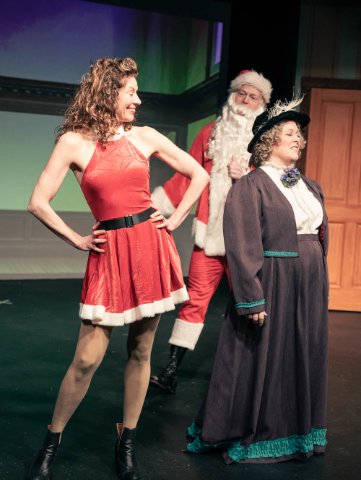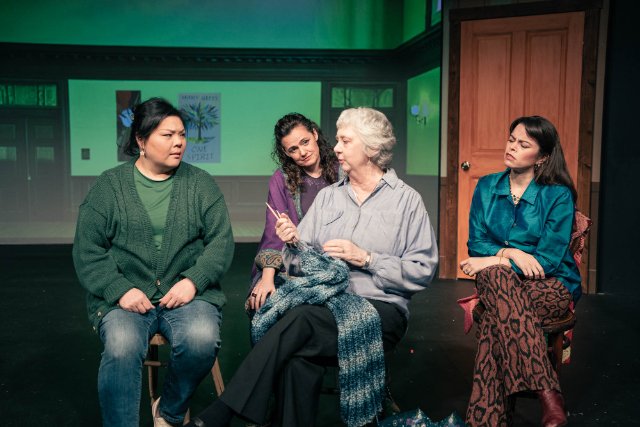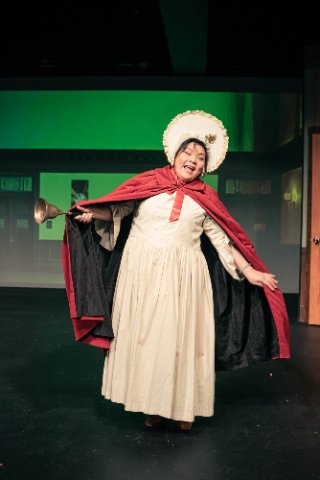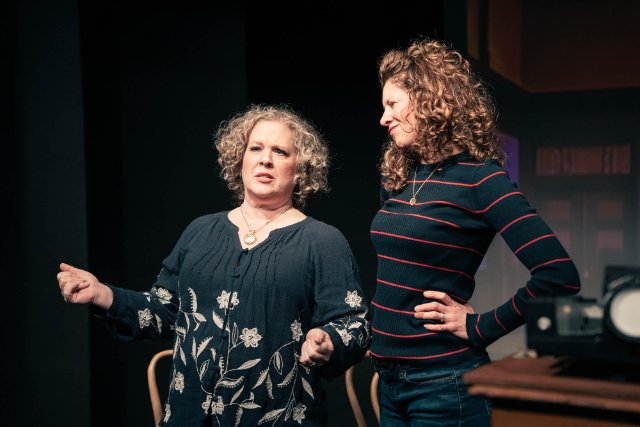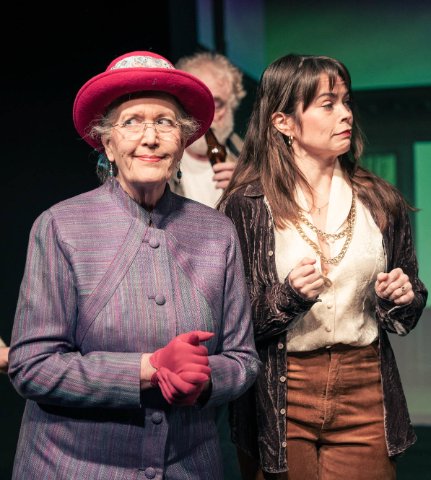Calendar Girls
Charity Receives a New Twist From Middle Aged Women
By: Victor Cordell - Feb 11, 2025
Few performing or visual art works acclaim the older woman. It is refreshing to see a piece that treats not one, but a bevy of them, as individual, vital, and dare we say, appealing and sexy females. As would be observed in the play, “The last phase of the flower is the most glorious.” Adapted from the 2003 British film Calendar Girls, the stage version follows the same trajectory, tracing the conflicts, obstacles, and joys of a unique method for raising money for a hospital in a small town in the Yorkshire region of England.
Although a true story, the movie Calendar Girls followed on the heels of the fictional The Full Monty, which almost seems like a companion piece, as it concerns a group of men who perform in a similar manner, also for benevolent reasons. For those unaware, that manner is nude.
The Women’s Institutes (WI) is a network of women’s service organizations founded in Canada and spread throughout Commonwealth countries. The central characters in the play are members of the Knapely (Yorkshire) WI, which produces an annual calendar with monthly photos to reflect regional sights and values, such as the churches of Yorkshire. When Annie’s husband John dies of leukemia, her close friend Chris comes up with the idea of raising money to replace the uncomfortable settee in the hospital’s visitors’ room.
But rather than picturing the traditional staid exemplars in the calendar, Chris takes a page from a cheesecake calendar she had seen at a mechanic’s shop. Why don’t the members pose nude, with critical parts discretely covered by domestic props such as cakes or balls of yarn? While the idea faced some tough sledding, it clearly did happen in reality, and the rest, as they say, is history. And (spoiler alert in this sentence!) it was such a successful history that the settee would be a mere line item in the project budget facilitated by the calendar proceeds.
In many ways, the narrative seems like an amusing throwback, despite its action occurring only 25 years ago. While competitions in domestic activities that bind WI members such as pie making and knitting still exist even in this country, they may seem quaint to a metropolitan audience. And resistance points by some members to the obscured nudity in the proposed photos ties more to an earlier era. A vicar’s daughter who already has a mixed-race child out of wedlock fears reaction from her parents. An overweight member is embarrassed about displaying even the fringes of her body without wraps. And the eldest participant notes that her husband first saw her naked only 10 years before, and that was by accident and seen by several other people as well.
Like many plays, the setup portion in Act 1 can be uninspiring, and this being an opening night without having had a preview, it seemed a little lethargic with dialog timing and delivery that could have been brighter and brisker. That changed dramatically at the end of Act 1 with the photo shoot preceded by the characters drinking a little courage. The enthusiasm and seeming spontaneity in the cast was palpable, as if this was the first time the women had experienced the disrobing. They squeaked and cheered like schoolgirls, totally shifting the energy of the performance.
Most of the clashes within the WI group occur in Act 2, after the calendar is released. Success often breeds discontent within small groups. Members jockey for recognition, clash for claiming credit, question the motivations and actions of others, and argue about future directions. Among others, close friends and leaders of the project, Annie and Chris, skirmish.
Those who didn’t support the racy calendar idea to begin with continue to find fault, and in this case, the president of the chapter tries to snuff enthusiasm, cruelly denigrating the most risqué of the participants, Celie. But in a thoughtful monolog, Celie redeems herself with a reflective narration of who she is, explaining why she dresses in a slutty fashion and what it is like dealing with the illness of golf.
Calendar Girls is the type of project that attracts performers committed to the cause, and this cast seems very dedicated. It is led by Alicia von Kugelgen who brings strong presence with a powerful speaking and singing voice as the purposeful Annie. Also noteworthy are the two who vie as the hotties, Jen Halsing as the ebullient underachiever Chris and Virgie Poole as Celie. No dialect coach is indicated in the program, but to this reviewer’s ears, all of the actors seemed trained specifically in English north country accents, so kudos to whomever, but to Director Michael Sally in any event.
This play will be enjoyed and appreciated by community theatergoers looking for a feel-good experience with dramatic overtones and a feminist bent.
Calendar Girls, adapted by Tim Firth from the film of the same name written by Juliette Towhidi and Tim Firth, is produced by Masquers Playhouse and plays on its stage at 105 Park Place, Point Richmond, CA through March 2, 2025.

